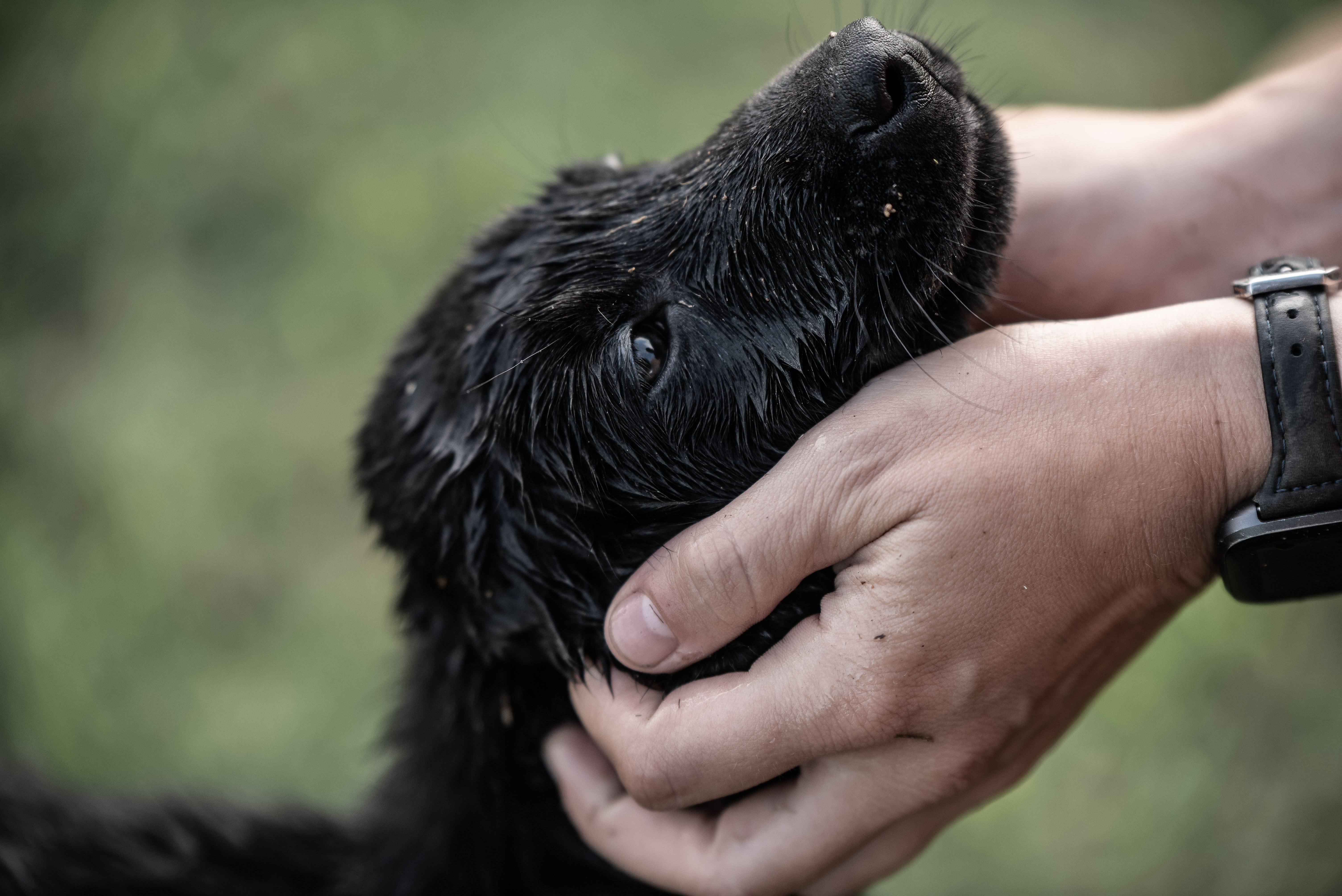Mar 1, 2022
So, you want to buy a retriever puppy
 By Tom Dokken, SportDOG®Brand Sr. ProStaff
By Tom Dokken, SportDOG®Brand Sr. ProStaff
Presented by SportDOG® Brand
(Originally published in the Spring 2022 issue of California Waterfowl)
If you know the parents and the dogs’ owners, and you’ve seen the dogs at work, it really makes no difference if they’ve ever participated in hunt tests or field trials.
If you’ve ever shopped for a new duck dog, you know that there is no shortage of puppies from which to choose. How do you decide on whom to buy your new hunting companion from, and how much to spend? Those and 100 other questions might clutter your mind as you weigh your options. Let me give you a few tips that I hope will help you narrow your decision.
HOW MUCH TO SPEND?
If you invest a few hours researching local ads, retriever publications and the internet, you will find that the cost of your new pup could range from free all the way up to $2,500. Could a free dog work out OK for you? Sure. And could a $2,500 dog turn out to be a disappointment? Maybe.
My recommendation is that you buy from the best bloodlines you can afford. Purchasing a retriever pup is a classic example of the old saw, “You get what you pay for.” Most of the time. What I mean by that is you can’t assume that because a breeder has placed a high price tag on puppies that it automatically means you’re getting a dog with great potential. Therefore, another old saying applies as well: “Buyer beware.”
I’ve often characterized a new puppy purchase as “a 12-year gamble.” When you bring a new pup into your home, in most cases you’re making at least a 12-year commitment. A dozen years’ worth of dog food, vet bills and other expenses are going to far outweigh the initial cost of a puppy. That’s why I suggest doing everything you can to tip the odds in your favor so that your gamble is less risky. Here are some of the factors you need to examine before you place your bet.
- IS THE BREEDER REPUTABLE? If a breeder is a knowledgeable professional, his or her reputation in the retriever community will be established. Word of mouth can make or break a breeder’s business. Do your homework and find retriever owners who have done business with any breeder you’re considering buying from. Interview them to see if their experiences back up a breeder’s claims.
- UNDERSTAND HOW TO READ A PEDIGREE. If a breeder proclaims that the parents of a litter are “AKC registered!” and offers little else in his sales pitch, shop
elsewhere. Saying a dog is registered, and therefore purebred, is like a restaurant advertising that its steaks are “100% meat!”
The pedigree on a purebred dog is going to indicate whether it is likely to have a meaningful level of natural ability. Study what the various designations on a pedigree mean. Major retriever organizations have their own nomenclature system, but I’ll use the common American Kennel Club examples here:
FC: Field Trial Champion
NFC: National Field Trial Champion
NAFC: Field Trial National Amateur Field Champion
AFC: Field Trial Amateur Field Champion
MH: Hunt Test Master Hunter
SH: Hunt Test Senior Hunter
JH: Hunt Test Junior Hunter
You are shopping for a hunting dog, so be aware that designations indicating obedience titles (CDX – Companion Dog Excellent, for example) or conformation titles (CH – Champion, for example), while they look nice on a pedigree, aren’t an indicator of hunting ability.
Accomplishments of a puppy’s parents are of the most importance. Grandparents matter to a degree. Earlier ancestry is interesting to look at, but the direct bearing on the puppy genetic makeup decreases the further back you go.
-
MEET THE PARENTS? Regardless of what’s on paper, take a step back and use some common sense if you are lucky enough to get a look at both parents. If the sire is a retrieving maniac and the dam is a high-energy bird fiend that you’ve witnessed in action, maybe that’s all you need to know. Dogs that are proven in the field should produce good-performing pups. If you know the parents and the dogs’ owners, and you’ve seen the dogs at work, it really makes no difference if they’ve ever participated in hunt tests or field trials.
The fact is, however, that getting to see both parents at work ahead of time is unlikely, which further explains how we’ve all come to rely on pedigrees so we can shop with confidence.
-
WHAT’S THE HEALTH GUARANTEE? To further bolster your bet that your pup is going to be a winner, I recommend that any breeder you buy from should be able to show you that both parents are certified to be free of eye, hip and elbow problems, and tested to verify they are not carriers of EIC (Exercise Induced Collapse). The further back in the pedigree that you see these health certifications, the better.
These tests are an investment the breeder has had to make, and you can expect that dogs that have these health certifications are going to in turn cost you a bit more than if you were buying from a casual backyard breeder. The upside, of course, is that it’s less likely you will have to deal with any of these issues in your dog.
Your breeder should back up health certifications with a guarantee. For example, a written agreement might designate that if your dog is diagnosed with hip dysplasia before it’s 2½ years old, you are eligible for a replacement puppy. Thankfully, diligent breeders don’t have to make good on that guarantee too often, but health issues do pop up with no explanation; all a breeder can do is lessen the odds that such a thing might happen.
Enjoy the search!


